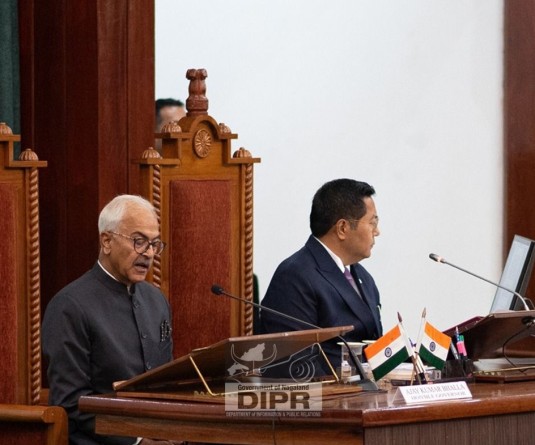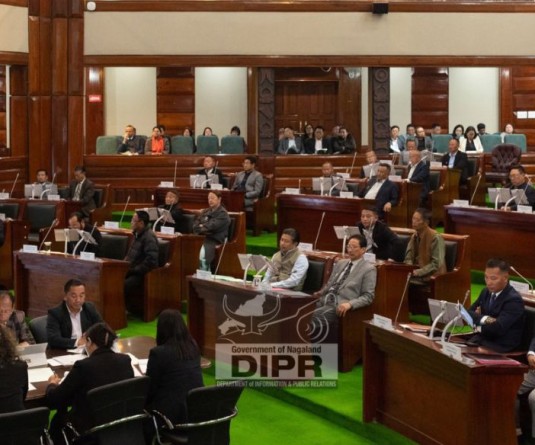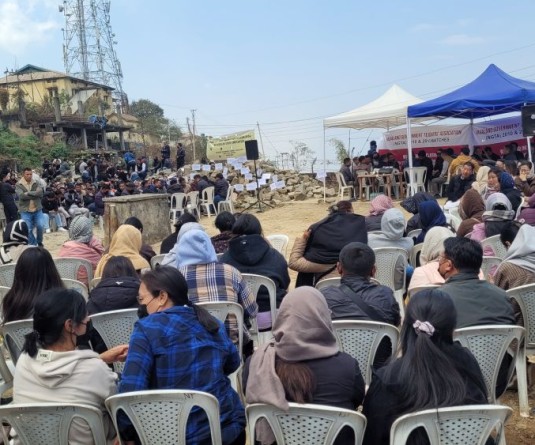Rediscovering indigenous science
.jpg)
Students exhibiting their science project on the theme ‘Sustainable food and farming systems’ at the 11th North East Network Biodiversity Festival held in collaboration with the SDEO office at Chizami on March 5.
11th NEN Biodiversity Fest begins
KOHIMA, MARCH 5 (MExN): Students of 11 schools participated at the 11th North East Network (NEN) Biodiversity Festival in Chizami on March 5 in collaboration with the SDEO office, Pfutsero.
More than 200 participants, comprising of students, teachers, Community Based Organisations, Non Government Organisations, community elders and student leaders took part in the event.
Wekoweu Tsuhah, State Director, NEN, Nagaland said that the aim of the festival is to bring together educational institutions, to have a meaningful dialogue on sustainable food and farming systems, and to rediscover indigenous science for a sustainable future.
“There is a growing disconnect between the young people with their environment, biodiversity and indigenous knowledge systems. There is also a devaluation of indigenous traditional science and this needs to be addressed,” Tsuhah noted.
Atula Wai, Principal, DIET Pfutsero called for a collaborative effort by both teachers and the community knowledge holders. She asserted that the education system needs a holistic approach by integrating a practical oriented curriculum. She pointed out certain examples of “indigenous science” that has potential for replication. In this, Wai referred to the terrace cultivation in Phek district which has key elements of environmental sustainability.
In the inaugural speech, Secretary General for the Naga Peoples’ Movement for Human Rights (NPMHR), Neingulo Krome said that rediscovering “indigenous science” would also mean to revive traditional knowledge and indigenous people’s perspectives for a sustainable future or livelihood.
He stressed on the need for “rediscovering our roots as Indigenous peoples whose future cannot be sustainable through non-indigenous means of livelihood, nor with foreign systems and ways of life.”
He hoped that the legacy of Naga traditional knowledge and all other indigenous people’s perspectives would live on under future generations “as we continue to co-exist with all living things in harmony and mutual respect with each other.”






